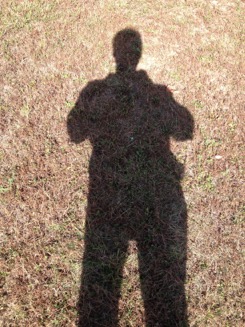SecondOrderChangeDay

Today delineates the point where all the previous prattle manifests into a real difference, or so it so convincingly seems. But what’s really changed? Like the day before, we woke up in a different part of the universe than where we went to sleep, but unlike yesterday morning, this morning dawned on a Brand New Year! This distinction between last year and this year stems from an agreement, a conviction, a belief, rather than a physical difference, and that phenomenon alone renders this day worthy of great celebration.
Usually, when I encounter a difficulty,
I imagine dispatching it by making some change. I must have imprinted early on the notion that only physical changes matter, because that’s how I initially envision my salvation. I might frantically rearrange the deck chairs, genuinely believing that because this entails physical reordering, real change occurs. But then Second Order Change Day arrives to remind me that the most enduring changes require no deck chair rearranging, but more often result from some more subtle shift.The deck chairs represent what philosophers call First Order phenomena, physical presence. We change physical presence by moving some thing from here over to somewhere else. We rearrange. And these changes can prove satisfying if the difficulty encouraging them qualifies as a First Order Problem.
If the lawn looks shabby, mowing it will completely (for now, anyway) resolve the presenting First Order problem. A solution sharing an ‘order’ with a difficulty yields satisfaction. But, the lawn in my new house looked shabby when I moved in and even mowing it yielded little satisfaction. If anything, it looked worse after mowing than it did beforehand. After considerable fruitless mowing effort, I realized that it looked crappy not because of any inherent crappiness but purely because of the idea I held for how it really should look.
I learned lawn care in the tradition of an English country garden, a philosophy well-suited to the English countryside. I had never lived anywhere but in the Northern hemisphere temperate zone, but my new place was situated in a high mountain meadow, not a low country one. Here, the meaning of lawn shifts rather dramatically. While some of my neighbors have reworked their yards to more closely match another climate zone’s propriety, most of them practice a form of radical acceptance and recognize their bit of mountain meadow for what it might truly be, mountain meadow.
About the time this realization arrived, I found a raft of obligations disappearing. No, I need not mow my lawn every week, for the native grasses grow slowly and the wandering herds of elk and deer prune it down throughout the year. My eyes would need to adjust their judging gaze away from comparing the yard to some Shakespearian ideal into appreciating its native beauty, which relies upon really radically different metrics for satisfaction. My First Order lawn mowing gave way to a more subtle Second Order acceptance of the way things seem to be here.
These seemingly small distinctions serve to support the greatest of changes. Wars, fought with First Order ferocity, tend to end with some Second Order realization. Relationships washed up on the rocks of disagreement tend to mend once some common perspective emerges, like the shared experience of a new year celebration.
On this day, on Second Order Change Day, we seem supremely capable of letting go, and thereby letting fresh perspectives come. Some of these typically extinguish themselves in favor of attempting to preserve Ault Lang Sine’s status quo, but some will persevere and produce significant if subtle change.
I think of today as the day created to remind me that I need not necessarily rearrange the old deck chairs to achieve satisfaction. I can change my perspective more easily and sometimes produce even greater change, even greater satisfaction. Changing perspective, meaning, interpretation, significance all qualify as Second Order change. It’s sparked by insight, fueled by learning, and preserved by acceptance and appreciation. I might never mow my lawn again now that I’ve realized just where I live.
That wasn’t my lawn I was seeing there, but my beliefs overshadowing my meadow.
©2016 by David A. Schmaltz - all rights reserved


